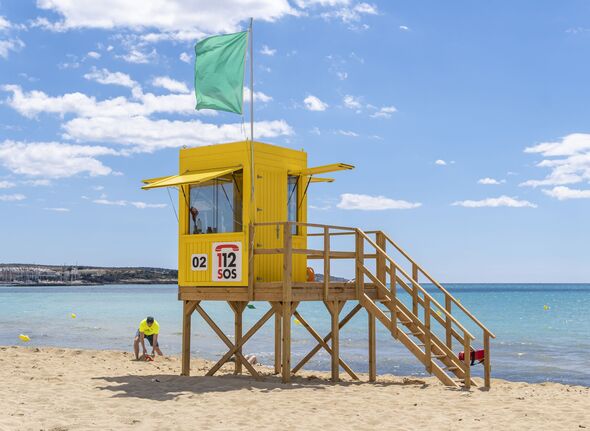Majorca’s beaches have caught a rising number of swimmers by surprise this summer, forcing the Spanish government to consider strengthening its emergency protocols for tourists.
Over the past few days, five Germans have been rescued after getting swept up in the sea currents, according to the emergency services.
This includes two men and two women at Son Bauló beach on the east of the island and another tourist at Sa Canova beach on the north coast. All were carried away by sudden strong currents.
As a result, Mallorca is set to step up beach patrols and ensure their lifeguards are extra vigilant this summer, reported the Majorca Daily Bulletin.
According to the National Oceanic and Atmospheric Administration (NOAA), rip currents are commonly mistaken for rip tides – the latter of which is a type of current that runs with the movement of tidal water through inlets and the mouths of estuaries, embayments and harbours.
The NOAA has provided advice on what to do if you are caught in a rip current – they said to remain calm and signal to shore for help. Swim parallel to the shore, instead of towards it, until you are out of the current. Once free, turn and swim toward the shore.
Alternatively, let the current carry you out as you float or tread water until the force weakens. Rip currents usually dissipate beyond the line of breaking waves, the NOAA said. Again, once free, swim to shore.
Rip currents are one of the ocean’s most common and dangerous phenomena.
While it may feel like you are being pulled underwater, “it’s [actually] just going to pull you away from shore,” the Ocean Today advice says.
The advice continued: “Always let a lifeguard make a rip current rescue because often, the people that try to make rescues themselves end up being the ones who drown. Instead, the best way to help is to throw them something that floats and immediately get a lifeguard for help.
“Spotting a rip current can be difficult… [they] are easier to see at an elevated position, like a dune line or beach access, and then look for places where waves aren’t breaking, so flat spots in the line of breaking waves. And then also where there’s maybe foam or sediment in the water being transported away from the beach offshore.”
